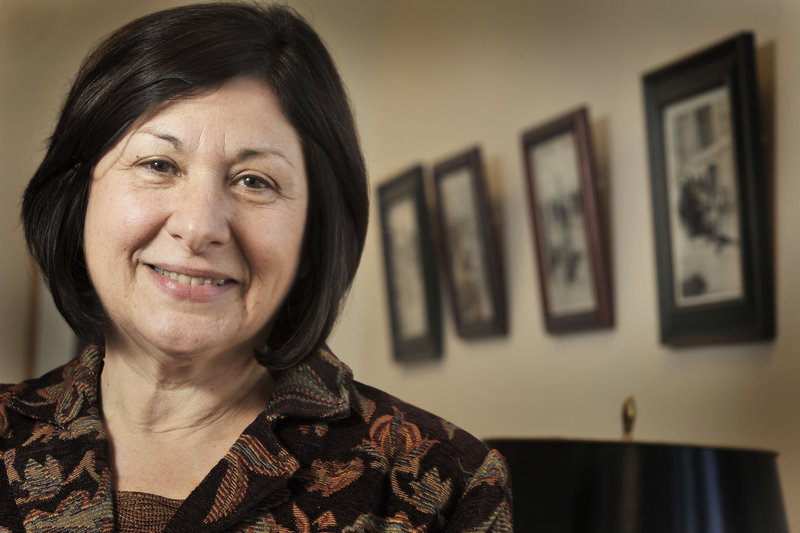Selma Botman is hopeful that the unrest in Egypt will reach a peaceful conclusion, and that the end result will be the ouster of the country’s president, Hosni Mubarak.
Botman, president of the University of Southern Maine, is an expert on Egypt and the author of three books on the country’s transition from English colonial rule to independence. Last year she taught a course at USM on modern Egyptian history and political movements.
“This is a momentous time,” Botman said in an interview Monday. She marveled at Egyptians’ willingness to “overcome decades of fear of a vicious” internal security force to take to the streets, demanding that Mubarak step down and that free elections be held.
Violent protests have been going on for about a week, with people pushing for economic reforms and greater opportunity, along with the end of Mubarak’s nearly 30 years of rule.
Botman said she is nearly certain that Mubarak won’t be able to stay in power, given the size and duration of the demonstrations. She said Mubarak probably is talking to officials in another country – Saudi Arabia, most likely – to which he would flee, or will soon begin such discussions.
“This is a happy moment for me,” said Botman, who believes that Mubarak’s departure would be a big step toward economic development, social justice and freedom for Egyptians.
That might be accomplished with little more bloodshed, Botman hopes.
She noted that the military is taking a big role in monitoring the demonstrations, and that there is greater respect for the military than for police, who have “systematically arrested people and tortured people.”
It appears that the military is now acting as a buffer between the demonstrators and security forces, she said.
Nicole Clegg, spokeswoman for the city of Portland, lived in Egypt for six years after graduating from college in the mid-1990s. Clegg said the discontent over the lack of economic opportunity has been simmering in that country for a long time.
She said it wasn’t unusual for a student to graduate from college with marketable skills – accounting, for instance – and be unable to find a job that paid more than $100 a month.
Egypt is a largely cash-based society – with little credit available – so a person making that kind of money would have almost no hope of ever buying a home and living the equivalent of a middle-class American life, she said.
“If you’re young and starting a family … where are you going to get opportunity?” she said. “It’s an incredibly poor country and opportunity is limited. That was a major source of frustrations – especially among young men – not feeling like they had a choice or a lot of options.”
Clegg said many of the friends she made in Egypt have left the country, settling in Canada, where they could find jobs.
With foreigners fleeing the country, she is worried about the uprising’s impact on tourism, the lifeblood of Egypt’s economy.
Botman said she is hopeful that, ultimately, Egypt can make a transition into a democratic society, unlike Iran, which revolted against the shah’s autocratic rule in 1979 and then adopted a government and society controlled by Muslim fundamentalists.
She noted that the Ayatollah Khomeini became a rallying figure in the Iranian revolution because secular groups were battling each other, leaving an opening for fundamentalist rulers. There doesn’t appear to be such a split among Egypt’s secular leaders, she said.
And the nature of the Egyptian people suggests that a peaceful transition will occur, Botman said.
“Egyptians are not violent people,” she said. ‘They’re really the kindest and most good-natured people that you will find.”
Staff Writer Edward D. Murphy can be contacted at 791-6465 or at: emurphy@pressherald.com
Send questions/comments to the editors.




Success. Please wait for the page to reload. If the page does not reload within 5 seconds, please refresh the page.
Enter your email and password to access comments.
Hi, to comment on stories you must . This profile is in addition to your subscription and website login.
Already have a commenting profile? .
Invalid username/password.
Please check your email to confirm and complete your registration.
Only subscribers are eligible to post comments. Please subscribe or login first for digital access. Here’s why.
Use the form below to reset your password. When you've submitted your account email, we will send an email with a reset code.